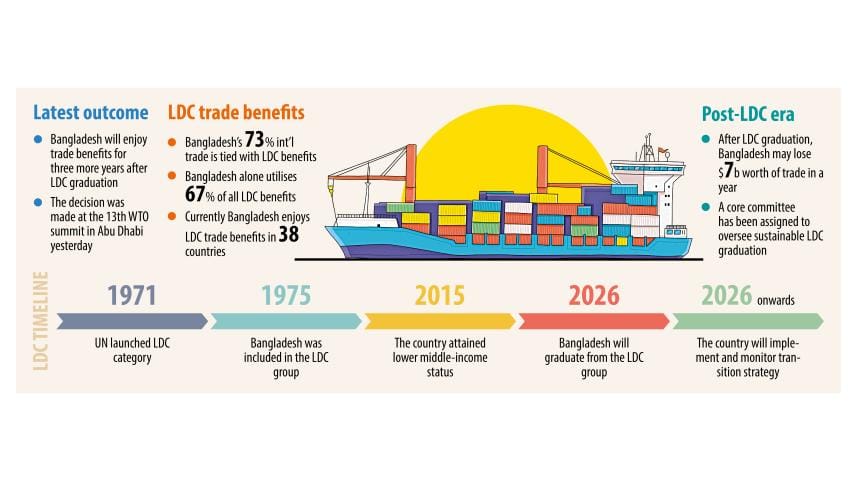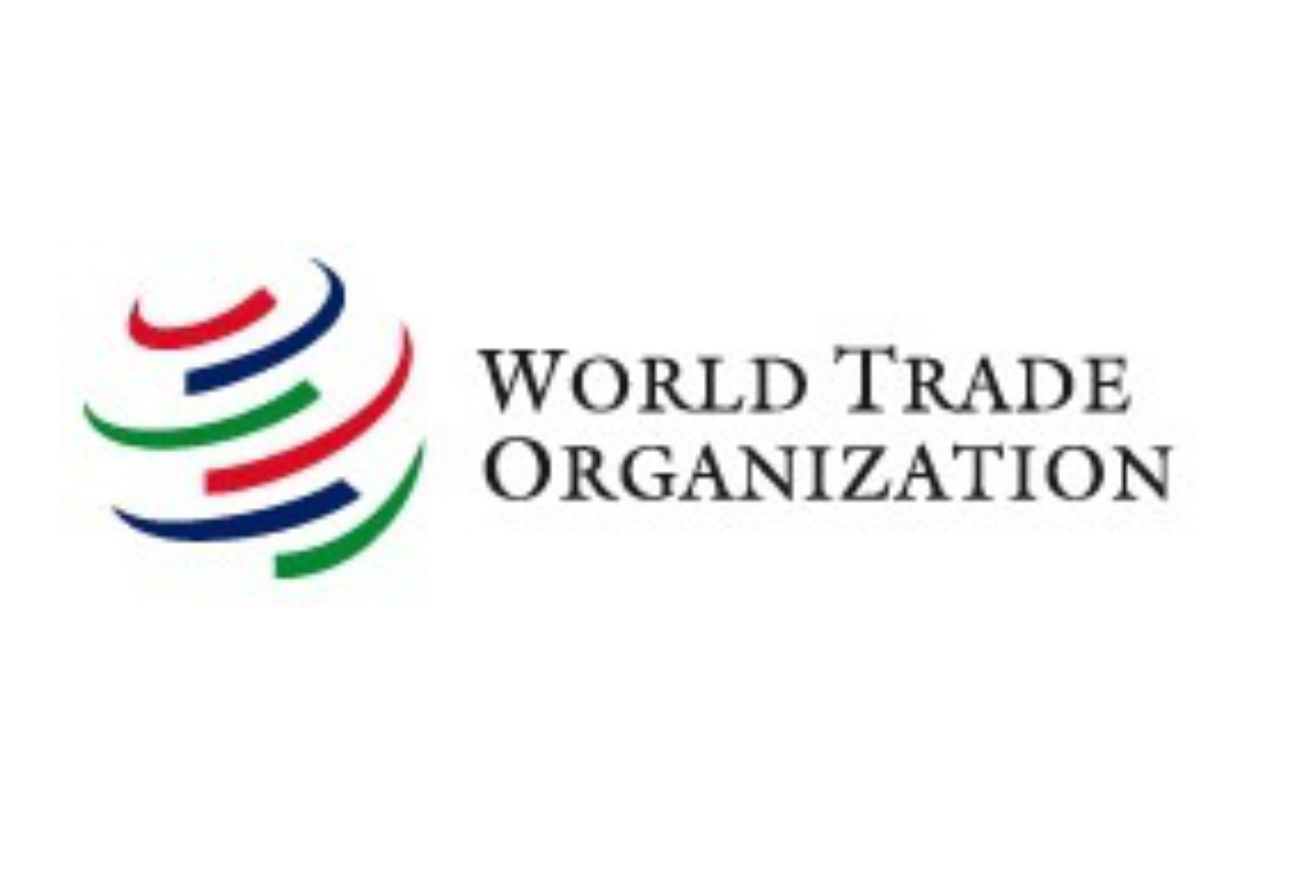Bangladesh to enjoy duty benefit until 2029 as WTO members allow extension

Bangladesh will keep enjoying duty-free market access for three more years after its graduation to a developing nation in 2026 as the extension was endorsed by 166 members of the World Trade Organisation (WTO) at its Ministerial Conference that concluded in Abu Dhabi on Friday night.
"A member that graduates from the LDC category shall continue to be eligible for LDC-specific technical assistance and capacity-building provided under WTO's Technical Assistance and Training Plan for a period of three years after the date on which the decision of the UN General Assembly to graduate that member from the LDC category becomes effective," said the WTO.
After an intense negotiation for more than five days at the 13th WTO Ministerial Conference between February 26 and March 1, the member countries reached the consensus on the extension of the trade benefits for the LDCs (least-developed countries) that graduate.
Bangladesh joined the LDC group in 1975 and is going to leave it on November 24 of 2026.
And until Friday, there was uncertainty that the country would lose $7 billion worth of trade a year following the graduation because of the erosion of the preferential trade facility after graduation as suggested by various studies. That uncertainty is over until 2029.
The three-year extension came after the LDC group, chaired by Djibouti, applied to the WTO and other UN bodies in 2020 for the continuation of the market access to graduating LDCs for 12 more years as their economies were jolted by the severe fallout of the Covid-19 pandemic.
The outbreak of the Russia-Ukraine war in February 2022, which hit hard the LDCs and the low-income countries, emerged as an even bigger blow for the group and made their demand more justifiable.
The WTO countries agreed to extend the trade benefit to the graduated LDCs at the 12th Ministerial Conference in Geneva in June 2022 although no time was specified at that time.
The demand was considered in the WTO general council meeting on October 23 last year and the ministers have now endorsed the decision, said Mustafizur Rahman, a distinguished fellow of the Centre for Policy Dialogue (CPD), a think-tank in Bangladesh.
"Since Bangladesh will obtain the LDC-related trade benefit even after graduation, it has created an opportunity for all other graduating LDCs as well," he said.
He said Bangladesh can now negotiate for trade benefits with the European Union, China, India, the UK, South Korea and other countries where it qualifies for the facility.
Bangladesh, however, will not enjoy trade benefits in the US even though the American negotiator endorsed the extension. This is because the world's largest economy currently has no preferential duty programme for the LDCs.
Bangladesh's international trade has grown mainly riding on the duty benefit under the LDC category. Currently, 73 percent of the country's shipments enjoy the LDC-linked market access, which has played a key role in making the nation the second-largest apparel supplier worldwide after China.
In fact, the country is the highest beneficiary of the duty-free trade benefit among 45 LDCs.
CPD's Rahman said no decision on the Trade-Related Aspects of Intellectual Property Rights (TRIPs) was taken at the summit. This means Bangladesh will not be eligible for the waiver of patents in producing pharmaceutical products after the transition.
It was not immediately clear whether the EU would continue the benefit beyond what it usually grants to graduating LDCs following the latest development in Abu Dhabi.
The bloc gives a three-year grace period to a graduating LDC. This already guarantees Bangladesh the trade benefit up to 2029.
"Beyond supporting least-developed members, WTO members took a step towards improving the clear and effective implementation of special and differential treatment for all developing countries in the key areas of standards for market access," said the European Commission in a statement on Saturday.
In Abu Dhabi, the member countries could not reach a consensus on some major issues like fisheries subsidies and public stockholding of food.




 For all latest news, follow The Daily Star's Google News channel.
For all latest news, follow The Daily Star's Google News channel. 
Comments